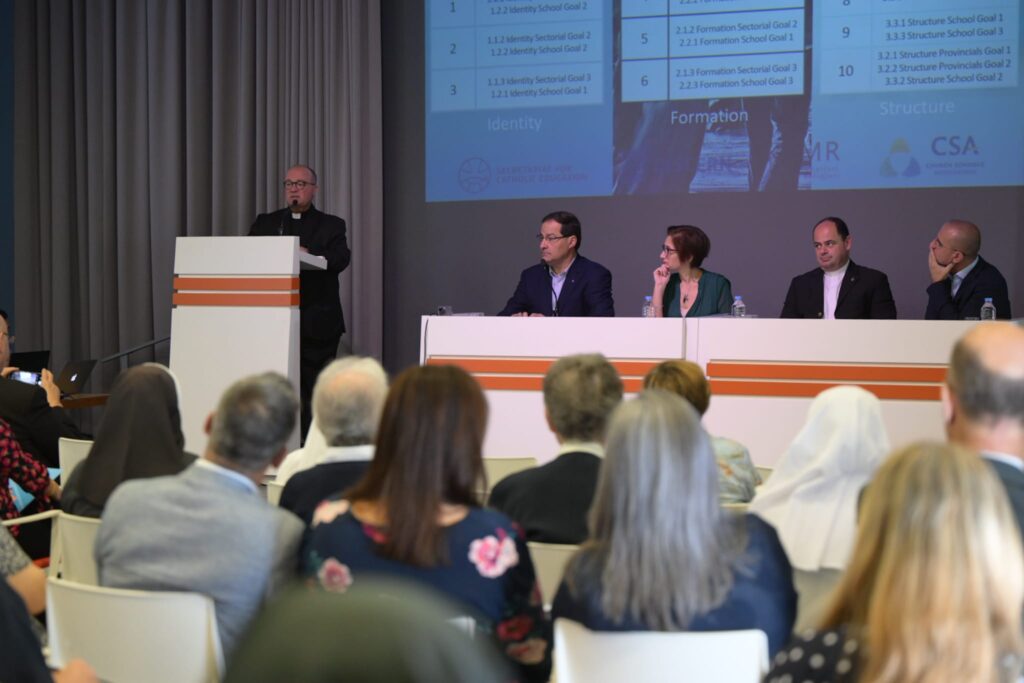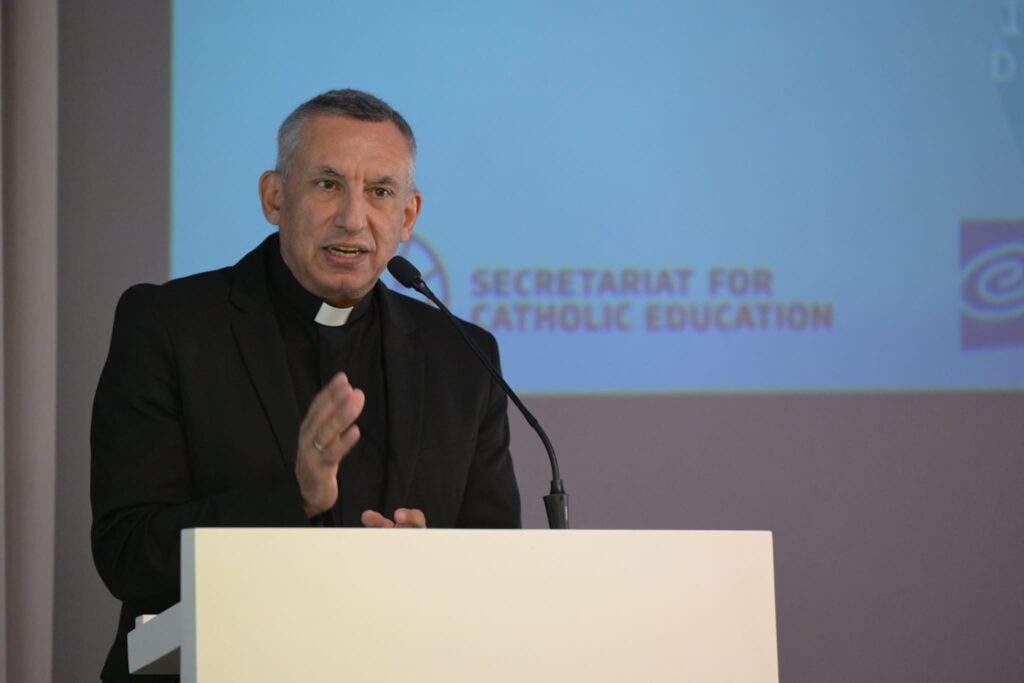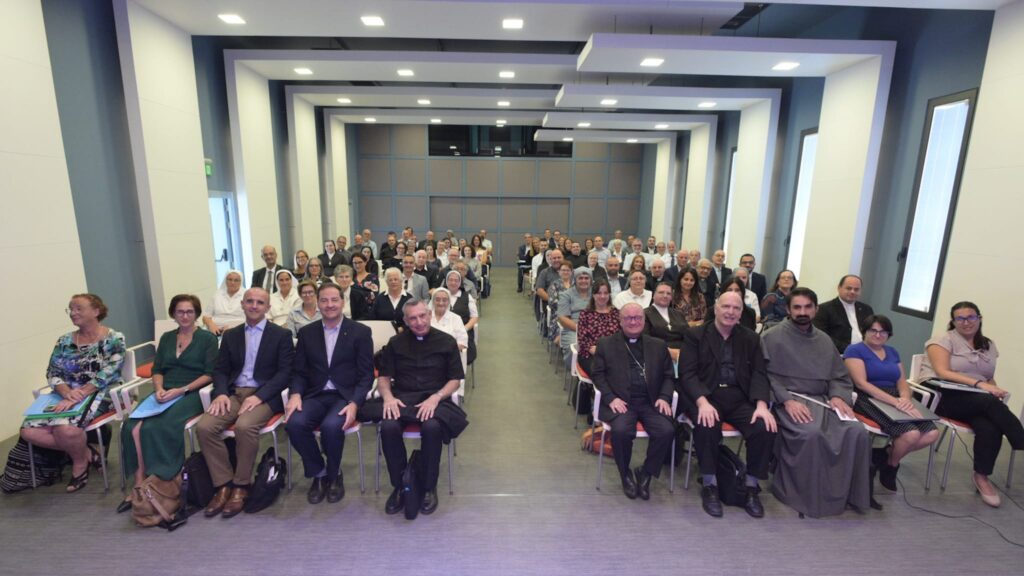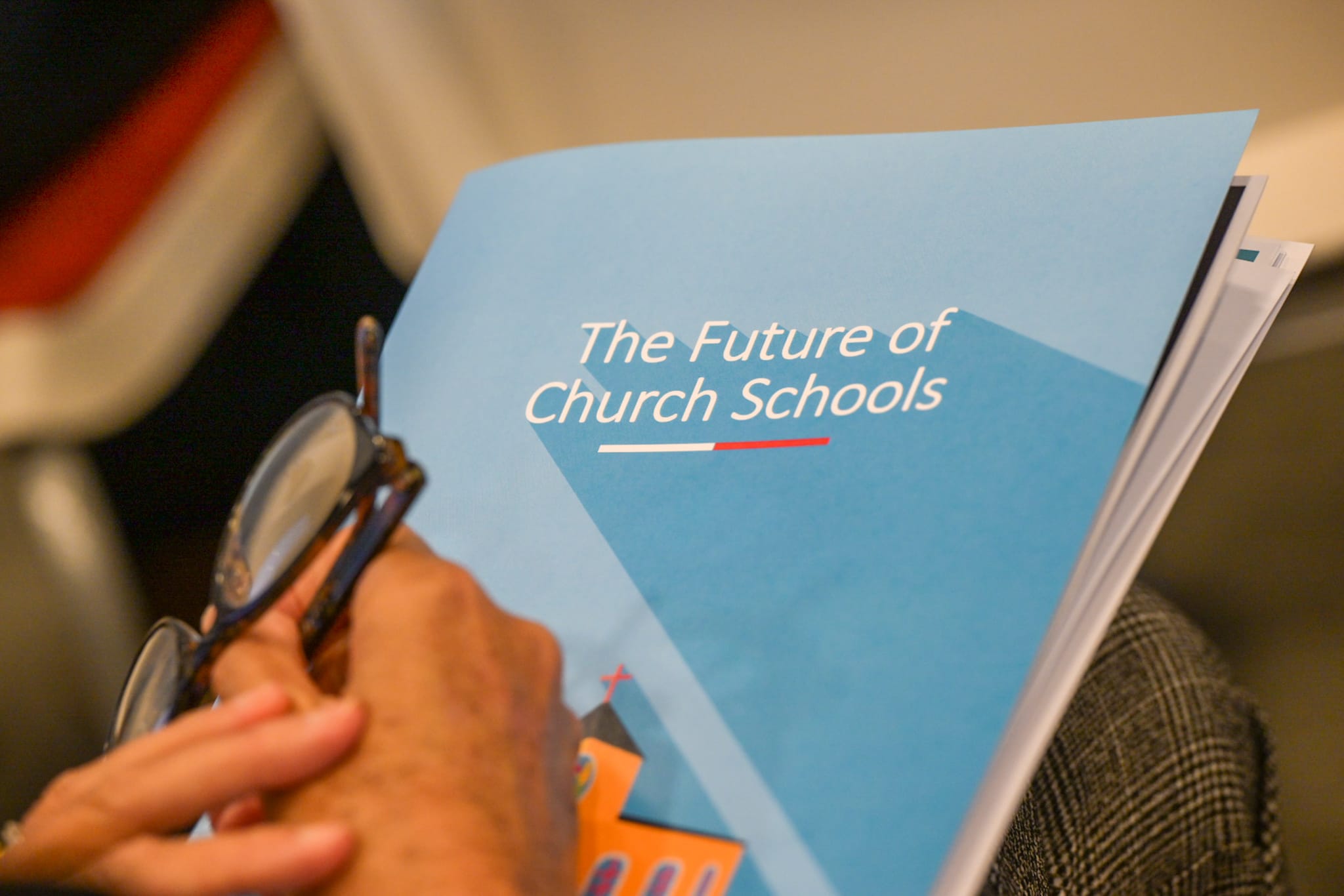
Research carried out among Church schools revealed that maintaining the Christian identity, intricately interwoven with the diverse charisms of the congregations, is an essential objective for all Church schools in Malta and Gozo. This imperative persists while continuing to strengthen the Christian formation provided to students, staff, and parents.
The research constitutes the initial phase of a collaborative process undertaken by the Secretariat for Catholic Education, the Association of Church Schools, and the Superior Major Religious Council. The objective is to determine the way forward for Church schools in Malta and Gozo, catering for almost 17,000 students and employing more than 3,000 educators.
The findings were presented to Archbishop Charles Scicluna and Bishop Anton Teuma during a seminar aimed at discussing proposed actions responding to the research findings. These proposals focus on three key areas: clarifying and reinforcing the identity of the Church school in today’s Malta and Gozo, providing comprehensive training for employees, and strengthening governance structures where necessary.

Over the years, the Church, through the efforts of diocesan and religious priests, nuns, and lay people, has played an instrumental role in shaping the educational landscape of the country. However, the shortage of vocations for consecrated or priestly life necessitates increased investment in the laity, both as school leaders and educators.
Conducted by DISCERN, this qualitative research also sheds light on how, despite contemporary societal challenges, Church schools persist in progressing towards greater inclusivity, offering holistic education, and generally fostering a positive environment imbued with sound relationships. Interviews with provincials of religious orders, rectors, principals, directors, and heads of schools revealed differences in how schools envision their future, particularly in staff formation, policy design, and leadership structures.
Addressing the seminar, Archbishop Charles Scicluna expressed his wish for Church schools to keep their feet on the ground while continuing to work together for the good of the community with great responsibility. He also stated, “I would like to ask that, through our work, we insist on developing the gift of critical thinking in ourselves and in every other member of the community, including our students and employees. It’s lamentable that we live in a world where we are constantly bombarded with numerous opinions and ideas, and we lack the ability to listen, ponder, and make the best choices”. The Archbishop reiterated the importance of Church schools instilling in students a willingness to be of service to others through volunteering, not only within the school but also in their local community. He also expressed the hope that Church schools continue to facilitate our encounter with Jesus Christ.

Bishop Anton Teuma stated that there is still a need for Church schools in Malta and Gozo, especially in the secular and multicultural society we live in. He argued that each Church school should clearly define its objectives to ensure the continual embrace and promotion of its Catholic identity. This commitment extends to the ongoing formation of individuals expected to be witnesses and leaders in the Church’s mission.
The subsequent step involves continued collaboration among the Secretariat for Catholic Education, the Association of Church Schools, and the Superior Major Religious Council to formulate action plans for the proposed enhancements in Church schools’ identity, formation of staff, and governing structures in Malta and Gozo.
The seminar witnessed the participation of heads of Church schools, rectors, principals, directors, and board chairpersons, along with the senior management of the Secretariat and the Archbishop’s Delegate for Catholic Education, as well as the provincials of the religious orders.






